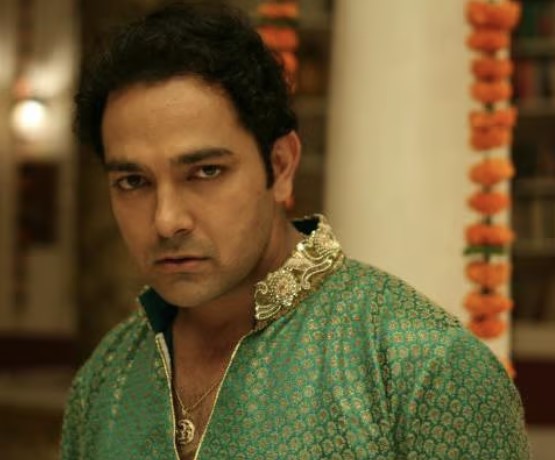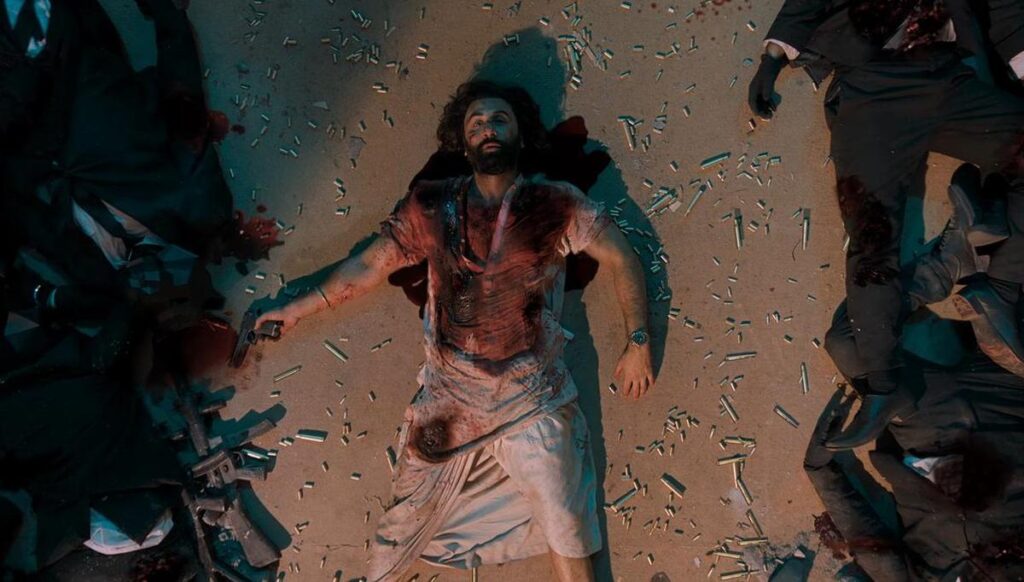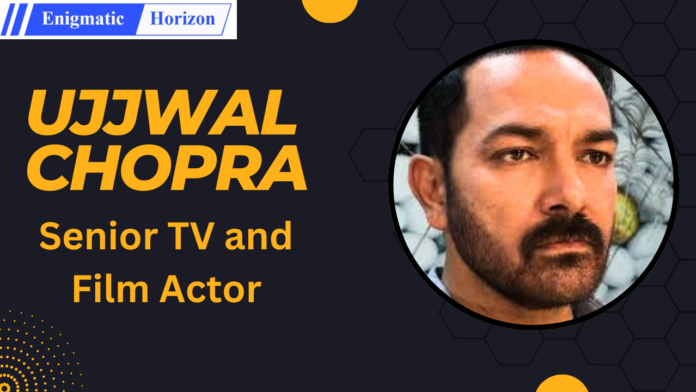Edited by – Robin Bhuyan
Interviewed and written by – Shubhi Agrawal
Ujjwal Chopra is a senior actor who has given memorable roles in movies such as the recently released Sam Bahadur, Uri: The Surgical Strike, Padmaavat and more. Join us in an interesting and raw conversation with him where he talks at length about his career, the film industry, the deteriorating quality of content, how changes can be brought and more.
Congratulations on the success of your recent movie Sam Bahadur. How was it working in the film alongside Vicky Kaushaland with Meghna Gulzar?
The experience was great. The team was very focused, professional, and precise about what they wanted to shoot, and what they wanted me to portray as Lieutenant General B.M. Kaul. There were books and Meghna had personally briefed and explained about those to me. They were precise with every detail, like the script; everything was written in a particular meter and they wanted me to deliver in that same meter.
They were even precise with the looks of the characters. They had chosen faces that were identical to the actual characters. Even during the makeup trials and initial photoshoots, Meghna was personally there, ensuring that the makeup was done right, discussing everything in detail, and using references to real pictures of the characters. So, they researched a lot and made sure that everything is portrayed accurately.
How challenging was it to perform with no scope for improvisation in your role at all?
Improvisation is something that has to be understood in a lot of depth. Whenever an actor improvises, there could be two approaches. One approach is that we improvise within the context of the story and the script. It often happens that actors become selfish and keep improvising only to make their character more interesting or impactful, so that the actor can gain more popularity. I don’t feel that is right, as improvising with that perspective can spoil the vision of the filmmakers. However, when you’re improvising to bring a newer dimension to the scene, it’s like giving your contribution. However, if the actor wants to improvise, it’s best to discuss it with the writer and the director, and if they allow, then only the actor must improvise. An actor might not know the context, and what direction the director wants to move the film into, and it’s not possible to share everything with everyone. So, if you want to improvise, it’s best to discuss, and only if they agree, an actor should improvise.

How did you land into acting? Did you always want to do it or you had other plans?
Well, I never planned to become an actor, but destiny brought me to it. I used to mimic my teachers during school and college, but I never performed on stage. However, later, one of my friends insisted I start performing. Although I was reluctant, he kept insisting, and so it began. Luckily, that year in my college, it was the first time ever that a theatre workshop was organized, and my friend enrolled me into it, without even asking me. That 10-day workshop helped me evolve as an actor and I was selected for the college theatre group. Some years later, my friend insisted that we go to Bombay, and on the tenth day after reaching, I ended up with some work. So, I never had to struggle that much, destiny was always bringing things to me. However, I could not accept Mumbai, and about 1.5 years later, I quit a regular TV show and went back to my native to pursue higher studies. Again, about two years later, another friend insisted I go back to Bombay, and although I was reluctant for many reasons, I talked to my father, and he only said one thing – “Go, but don’t come back this time.” So there was no turning back!
When you are considering a role, what are the factors that make you accept or refuse it?
There are multiple dimensions to it. Initially, it was about survival, so it was like do whatever you’re getting because survival is difficult here. However, when it is about choosing a role, the first thing to see is what we are getting from the role. If it is a life-changing role, and if you can afford it, you would even do the role for free. But if it’s an average role, then you have to negotiate on multiple factors. You have to see whether character is good and you need to be paid well too. Now, sometimes it also happens that you’re paid well, but the character is not something you feel like performing. The role that I did for Uri, actually I had refused for it earlier, because I didn’t find it very impactful. But then, I met with Aditya Dhar; he read the scenes to me and explained that my scenes would come at a very crucial point, and so I was convinced. This role gave me a lot more recognition than my role in Padmaavat. So, you never know what role will give you recognition, and thus you need to look into multiple factors and then figure out what you want to do and what you don’t want to do.
Which role in your career is your favourite?
There are two upcoming projects, one is Heeramandi, in which I am playing a very interesting character in a negative shade. Another one is Spike, whose name comes from a term used in Volleyball, and it is one of my best projects. The process was amazing, intentions were good; it quite a positive project, so that’s one of my favorite works. However, these are yet to come.
Can you tell us more about Spike? It’s a sports series, so did you have to learn playing Volleyball?
Well, as I said, they were very professional, so yes, they did ask me to learn, and even arranged for training. However, when I read the script, I found that there was nothing in the role that demanded me to play, as I was the coach. Also, I was shooting for something else, so the timings didn’t match. But I did have some sessions, and the best part was that the person who was coaching me was the same person who is the inspiration for my role. So, I could pick up a lot from him and that proved to be beneficial.
Another great thing about this series is that here real volleyball players were casted and they were trained for acting. Also, everything about the series is very positive. There is no negativity in it at all, and it’s entirely shot in Himachal. So, everything is very beautiful. However, unfortunately, they are not able to sell it, for some reasons. They are still trying, but let’s see.
Why do you think good, interesting stories are not getting popular, but those with violence, vulgarity, with minimal or no storyline at all are getting very popular?

I feel that people who decide what content must be brought out and put forth before the audience do not understand art very deeply. They are more pressurized to bring in revenues, and most of the time, it seems like the sole motive is money. So, it is very difficult to say how things work, but yes, people focused on art, struggle more.
What is your opinion on Censorship in cinema?
I feel the first censorship must be of the filmmakers themselves. In my honest opinion, I don’t feel our censor board is being very useful, especially after this recent film Animal. They have glorified violence to such an extent, I mean, what are they even showing? I have heard that the next part is going to be even more violent! So, the first question in my mind was how the censor board even passed it! These things have an impact, and the filmmakers must think about the impact they’re creating. If they censor themselves properly and think about the impact it has, then I don’t think there will be a need for censor boards.
The youth is more inclined towards this kind of violent and vulgar content. What is your take on that?
Well, OTTs have a huge role to play. Earlier, such things were not shown openly, and there was no abusive language or vulgarity used as compared to today, because things were monitored back then. But then, OTT came, and whatever people were not able to show on big screens, they started using OTT to show all of that. The viewers hadn’t seen something like that before, so obviously they got interested. But I think saturation has come on that as well. They are showing the same thing all the time, and the content there has started to make no sense to viewers eventually. Obviously, money plays a huge factor in what they are making. But I feel if everyone, whether the directors, the producers, or the viewers become conscious about what they are making and watching, the scenario can be improved!
